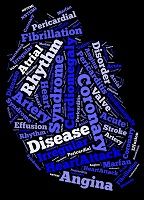Article
Heart Failure: Is Digital Monitoring a Waste of Time and Money?
Author(s):
Remote monitoring of heart patients who have implanted heart devices does not appear to help them live longer, a UK study called REM-HF found.

It was a rough morning for medical technology today at the European Society of Cardiology’s ESC Congress 2016 in Rome, Italy.
Immediately following the presentation of the DANISH study questioning the wisdom of implanting cardioverter defibrillators in many heart patients, a UK team challenged the usefulness of routine remote monitoring of heart failure patients with implantable electronic devices.
Reporting on his late-breaking study, known as REM-HF, Martin Cowie, MD, of the Imperial College London (Royal Brompton Hospital) the principal co-investigator of the study said the research found there was no value in such electronic hovering.
Patients who had it did not live any longer or have fewer unplanned hospitals stays than patients whose heart data was tracked remotely.
Each patients had one of three devices, a cardiac resynchronization therapy (CRT) device with a pacemaker, a CRT device with defibrillator function, or an implantable cardioverter-defibrillator.
The participants were randomized to digital remote monitoring or care without the monitoring.
The devices of those who were monitored sent patient data weekly to the patient’s physician.
Cowie said physicians were swamped with data but that it had little impact on patient care.
“There was a lot of activity but no meaningful effect,” he said.
The primary endpoint of the study was a first serious medical event, including death from any cause or unplanned hospitalization. The secondary endpoints included death from any cause, death from cardiovascular reasons, and unplanned hospitalization. There were no significant differences in the endpoints.
One reason patients with the monitoring were not getting better results than patients in the control group could be that both sets of patients were getting excellent medical care with or without digital help, Cowie said.
Asked whether the hospitals in the study have stopped the remote monitoring, Cowie said they now use it more selectively, adding “we don’t have a systematic [remote monitoring] program now.”





